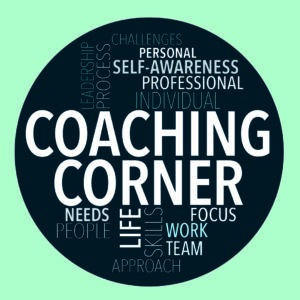
Letting go to grow: How one entrepreneur reclaimed his life and business
Frank's transformation from overwhelmed investor to empowered leader demonstrates how coaching and collaboration enabled him to stand back, delegate, and recover his life....

by Sunita Sehmi Published May 2, 2025 in Coaching Corner • 5 min read
 As a leader, you face complex and intricate challenges every day. At times it can be hard to pinpoint or even articulate these challenges. But until you can fully address and resolve them, they have the potential to stall your professional and personal growth, your career, and your team’s success. This is where professional coaching comes in.
As a leader, you face complex and intricate challenges every day. At times it can be hard to pinpoint or even articulate these challenges. But until you can fully address and resolve them, they have the potential to stall your professional and personal growth, your career, and your team’s success. This is where professional coaching comes in.
Sarah is a senior manager at a global pharmaceutical company. She performs this role with outstanding efficiency and expertise. Recently, however, Sarah has started to feel overwhelmed by workplace demands and struggles to communicate and assert her ideas effectively with colleagues and direct reports. Increasingly, in her personal life, she finds it challenging to make critical decisions that align with her values, often deferring to the advice of others, including family and friends.
Sarah feels that she is at an inflection point. She feels out of control in both her professional and personal life and lacks the vision and determination to take charge of what she wants. Recognizing that she may need help developing a greater sense of agency, Sarah decides to seek out the support of an executive coach. She sees this as a first critical step in reclaiming authority over her decisions, actions, environment, and the professional and personal future that she would like for herself.

“Sarah’s coach suggests that they work on distinguishing between aggression and assertiveness as a function of building agency and influence constructively. ”
Sarah’s coach listens to her story and together they decide to kick off her journey by focusing on her self-awareness. To help articulate Sarah’s core values, they both decide to dedicate some time to regular, reflective journaling exercises. As a result, it becomes clearer that the values of creativity, autonomy, and making a meaningful impact in her work mean most to Sarah.
From here, Sarah and her coach work together to pinpoint a few objectives they can work toward. First is the goal of rebuilding her confidence. To this end, Sarah is encouraged to set small, achievable goals in her personal and professional life, such as taking accountability for smaller projects at work that align with the goals she has articulated. Then, to increase Sarah’s knowledge base and professional expertise, the coach recommends that she focus on specific topics that are key to her role, such as medical innovations.
Sarah’s coach also suggests that they work on distinguishing between aggression and assertiveness as a function of building agency and influence constructively. This entails asking the question: does her voice matter? If so, should she feel justified and confident in expressing her needs? Making this shift in mindset is complemented by some additional techniques. Sarah works with her coach to build her speaking ability with emphasis and confidence. A simple technique here is to use the pronoun “I.”
Sarah practices using statements such as “I believe this approach will work best:” an assertive and emphatic approach to communicating her perspective and needs. With her coach, she also works on mindful breathing and purposefully reframing situations that historically have caused her stress. Instead of focusing on frightening outcomes – disagreements or a refusal to see things her way – Sarah is encouraged to view encounters with colleagues as a simple interchange of ideas, where different parties have different (but not more valid) perspectives. In tandem, she and her coach work to ensure that her nonverbal communication – her body language, tone of voice, and facial expressions – convey confidence and authenticity.
Week by week, Sarah transforms into a more polished, confident, and impactful communicator. This progress enhances her ability to articulate her ideas and cements her reputation as a leader who can inspire, influence, and deliver results. Back in the workplace, this work is supported by purposefully and proactively offering collaboration and support to diverse colleagues.
As her confidence grows, Sarah has started to build a greater sense of momentum in her career. She owns her own decisions and their outcomes and makes space to reflect on what works and what still needs improvement.
As her confidence grows, Sarah has started to build a greater sense of momentum in her career. She owns her own decisions and their outcomes and makes space to reflect on what works and what still needs improvement. Having recently completed a company online course on medical technology, she feels better equipped to contribute proactively to discussions, which in turn is boosting her credibility and her sense of agency. Colleagues have started noticing this shift and responded well to boundary-setting, meaning that Sarah can negotiate her workload and focus more on high-impact jobs.
Taking on the leadership role has positively stretched Sarah’s capabilities and confidence. The project has gone well; she has earned recognition from senior management and positioned herself positively for future leadership possibilities within the organization. Meanwhile, her ability to delegate has led to her team feeling greater trust, empowerment, and ownership.
Following the coaching journey, Sarah understands that agency is built through self-awareness, confidence, strategic action, and communication. She also knows that influence comes from deepening expertise, communicating assertively, and fostering relationships. She has greater control over time and direction, stemming from setting boundaries and stepping outside of her comfort zone.
In this series, we share real-world cases that come from our work with leaders. Read on to discover the specific challenges that face each of the leaders we have coached – and the insights that have helped them navigate their multifaceted challenges to find their own solutions. How might these insights and questions apply to you?

Organizational consultant and author
Sunita Sehmi is an organizational consultant and author of How To Get Out Of Your Own Way and The Power of Belonging. Her consulting firm, Walk The Talk empowers senior leaders to build high-performing organizations and teams across a breadth of sectors and industries. In her free time, Sunita volunteers, supports several female-led organizations in India and is a Business Mentor for the Richard Branson Centre of Entrepreneurship. She also volunteers for Cancer Support Switzerland in her hometown, Geneva. Sunita lives with her husband in Geneva, Switzerland. She has two grown-up sons.

May 9, 2025 • by Vincent Pieterse in Coaching Corner
Frank's transformation from overwhelmed investor to empowered leader demonstrates how coaching and collaboration enabled him to stand back, delegate, and recover his life....

February 13, 2025 • by Nadine Hack in Coaching Corner
Through mentoring, team empowerment, and striking a balance between leadership and personal development, Susan, a female CEO, overcomes micromanagement and burnout....

January 31, 2025 • by Angelica Adamski in Coaching Corner
In our Coaching Corner series, we share real-world coaching cases that come from our work with leaders....

December 18, 2024 • by Paul Vanderbroeck in Coaching Corner
Anne, a recently hired CFO at a multinational manufacturing company, embraces delegation, strategic thinking, and professional development as she moves from consultant to leader....